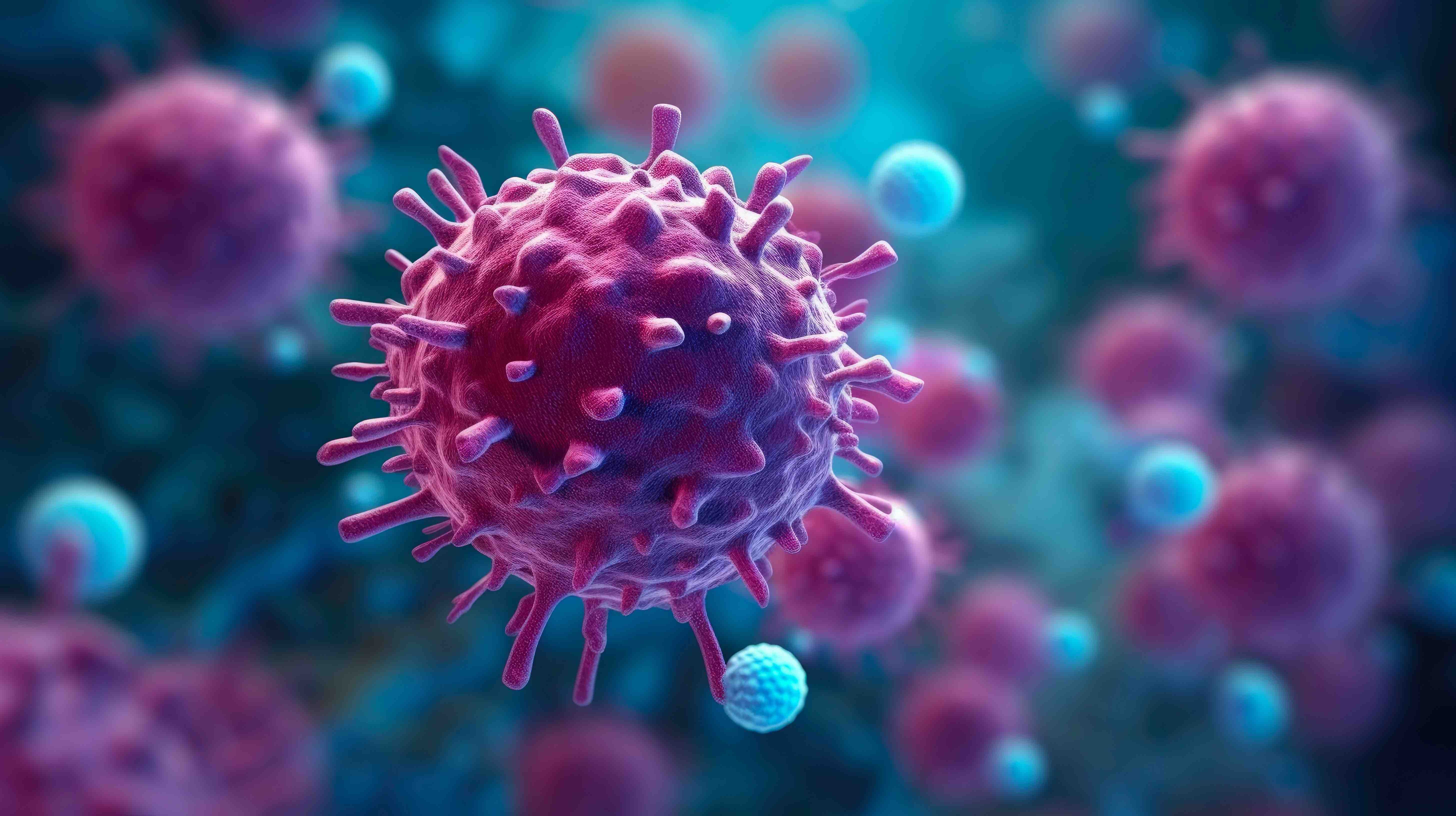- Center on Health Equity & Access
- Clinical
- Health Care Cost
- Health Care Delivery
- Insurance
- Policy
- Technology
- Value-Based Care
New Generation of CAR T May Elicit Improved CR Rates in CLL
A third-generation chimeric antigen receptor (CAR) T-cell therapy yielded encouraging response rates and safety findings among patients with relapsed or refractory chronic lymphocytic leukemia (CLL).
A new generation of chimeric antigen receptor T-cell therapy has shown promising efficacy and safety in a small study of heavily pretreated patients with chronic lymphocytic leukemia (CLL).1
Results of the early-/mid-stage study, published in Leukemia, found encouraging response rates and other indicators of efficacy, as well as favorable safety, with third-generation CAR T cells among patients with relapsed or refractory disease. If confirmed in late-stage trials, the approach could serve as a new option for relapsed/refractory patients.
The goal of third-generation CAR T-cell therapies is to mitigate the exhaustion observed with second-generation options, potentially by modifying the CAR vector. | Image credit: AIGen - stock.adobe.com

“Over the past two decades, the landscape of CLL therapy has undergone a significant transformation, moving away from chemoimmunotherapy approaches towards the adoption of targeted therapies, notably BTK and B-cell lymphoma 2 inhibitors,” wrote the researchers of the study. "However, challenges persist as in particular patients with genetically high-risk CLL tend to develop resistance to these targeted therapies with a consecutive dismal outlook.”
Second-generation CAR T-cell therapies, such as lisocabtagene maraleucel (liso-cel; Breyanzi),2 have changed the course of treatment for certain types of B-cell malignancies, including CLL. However, responses to these cell-based treatments in CLL have lagged behind those seen in other indolent B-cell lymphomas, including in non-Hodgkin lymphoma.3
The goal of third-generation CAR T-cell therapies is to mitigate the exhaustion observed with second-generation options, potentially by modifying the CAR vector. The new generation of CARs have 2 costimulatory domains to alleviate exhaustion and allow for enhanced and quicker expansion.
With limited data on the potential of third-generation CARs, researchers treated 9 patients, who had previously received a median 5 prior treatments, with HD-CAR-1. Patients included in the trial were a median age of 60 years and had all previously received treatment with a Bruton tyrosine kinase inhibitor and a venetoclax-based regimen.
Three months after receiving treatment, 6 (67%) patients had achieved a complete response (CR), with 5 (83%) showing undetectable minimal residual disease. With a median follow-up of 27 months, 69% of patients were still alive and the progression-free survival (PFS) rate was 30%. Achieving a CR was associated with better PFS, with patients who achieved a CR having significantly longer PFS than those who did not (median PFS 12.1 months vs 3.8 months; P = .024).
These findings suggest that third-generation CAR T-cell therapy may elicit improved CRs in patients refractory to other treatments, explained the researchers, noting that CR rates of current CAR T-cell approaches have been suboptimal.
Data from 117 patients in the pivotal liso-cel trial—TRANSCEND CLL 004 (NCT03331198)—showed an overall response rate of 48% and CR rate of 18%, with most CR rates showing durability.
“The low CR rate observed in these trials prompted us to attempt debulking of leukemia cell load prior to HD-CAR-1 treatment to facilitate CAR T efficacy and at the same time to reduce toxicity risks,” explained the researchers. “In most heavily pretreated patients this was successfully achieved by using venetoclax-CD20 antibody combinations despite prior failure of fixed-duration venetoclax.”
Safety data from TRANSCEND CLL 004 showed grade 3 cytokine release syndrome(CRS) reported in 10 (9%) of patients treated with liso-cel and grade 3 neurological events reported in 21 (18%). There were no grade 4 or 5 CRS events and 1 grade 4 neurological event.4
Findings from this current study showed 1 case of grade 3 CRS, though CRS overall occurred in 7 patients, and no cases of neurotoxicity.1 Immune effector cell–associated hematotoxicity (ICAHT) was observed early on in 8 (89%) patients, with 1 patient experiencing grade 4 ICAHT. Late ICAHT occurred in 3 patients (one grade 1 and two grade 2), none of which required granulocyte colony-stimulating factor therapy.
References
- Derigs P, Schubert M-L, Dreger P, et al. Third-generation anti-CD19 CAR T cells for relapsed/refractory chronic lymphocytic leukemia: a phase 1/2 study. Leukemia. 2024:38-2419-2428. doi:10.1038/s41375-024-02392-7
- Bristol Myers Squibb. U.S. FDA approved Bristol Myers Squibb’s Breyanzi® as the first and only CAR T cell therrapy for adults with relapsed or refractory chronic lymphocytic leukemia (CLL) or small lymphocytic lymphoma (SLL). March 14,2024. Accessed November 26, 2024. https://news.bms.com/news/details/2024/U.S.-FDA-Approves-Bristol-Myers-Squibbs-Breyanzi--as-the-First-and-Only-CAR-T-Cell-Therapy-for-Adults-with-Relapsed-or-Refractory-Chronic-Lymphocytic-Leukemia-CLL-or-Small-Lymphocytic-Lymphoma-SLL/default.aspx
- Neelapu SS, Chavex JC, Sehgal AR, et al. Three-year follow-up analysis of axicabtageneciloleucel in relapsed/refractory indolent non-Hodgkin lymphoma (ZUMA-5). Blood. 2024;143(6):496-506. doi:10.1182/blood.2023021243
- Siddiqi T, Maloney DG, Kenderian SS, et al. Lisocabtagenemaraleucel in chronic lymphocytic leukaemia and small lymphocytic lymphoma (TRANSCEND CLL 004): a multicentre, open-label, single-arm, phase 1-2 study. Lancet. 2023;401(10402):641-654. doi:10.1016/S0140-6736(23)01052-8
